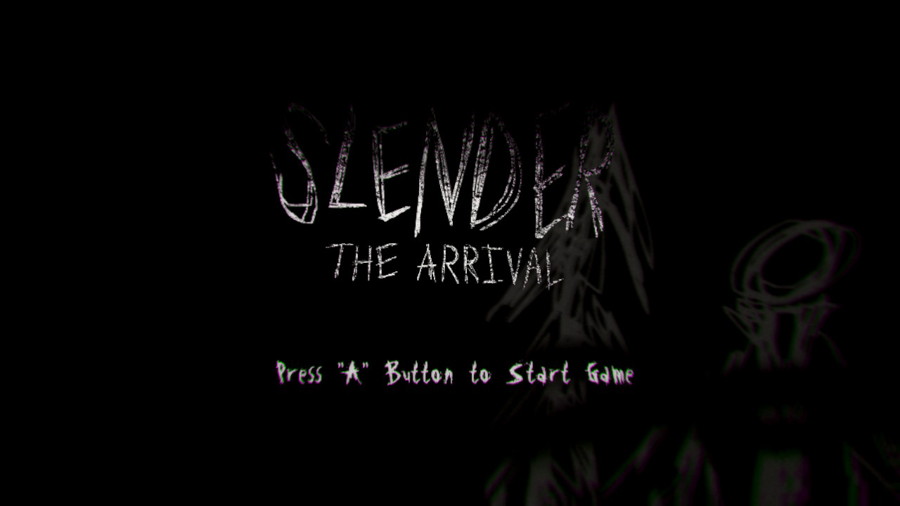
Slender: The Arrival was first released for PC back in 2013, a time when the Slenderman was all the craze. The game has since been released on a variety of consoles throughout the years, culminating in a release on Switch earlier this week. How well does this game hold up in 2019? Is the Slenderman even spooky anymore?
Platforms: PC, PS3, 360, PS4, Xbox One, Wii U, Switch [Reviewed]
Developer: Blue Isle Studios
Release: June 20, 2019 (Switch)
MSRP: $9.99
Press Copy provided by Blue Isle Studios
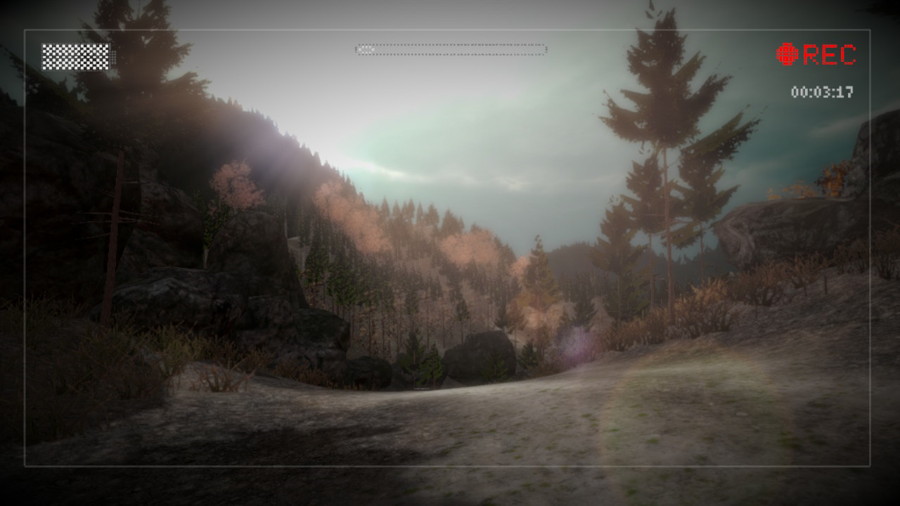
This game is a sequel to Slender: The Eight Pages. If you're familiar with that game, the goal was quite simple: find eight notes scattered randomly through a spooky environment before the Slenderman gets you. It was a very popular freeware game in 2012, especially among Youtubers and streamers. Slender: The Arrival is the sequel to that game, this time with a bigger scope. However, most of the core gameplaay is the same: find objects and pick them up before getting caught.
In Slender, you play as Laruen searching for your childhood friend Kate after receiving some unsettling letters from her. Things get dark fast (did we mention this was a horror game?) and it's your goal to solve the mystery of what happened to your friend, meanwhile trying to stay alive yourself.
The game is plot-driven, but its plot is rather simple. Optional collectables and notes let you piece together more of the story as time goes on. The story is interesting enough, but is ultimately rather forgettable. I didn't really mind much though, because I didn't feel like the plot was actually very important to the goal of the game: to spook the bejesus out of you.
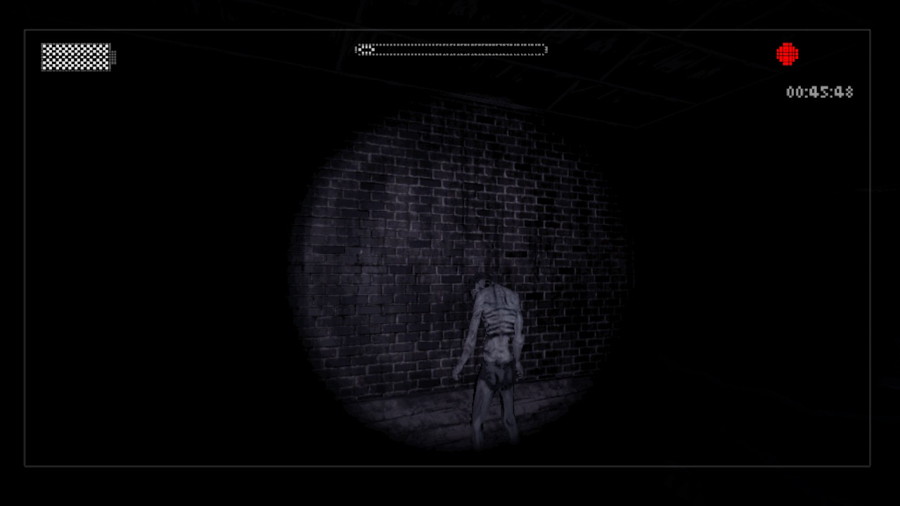
That's what this game does a pretty solid job at. As you progress through a few different areas (each with fairly unique environmental changes), the Slenderman and his henchman come at you in increasingly more intense ways. You're only way to fight back is to run (you can briefly stun some enemies with your flashlight as well). Some might not like this mechanic, but I felt it contributed to the general feeling of helplessness that's important to a horror story.
The game is seperated into a few different chapters (which can be selected and replayed from the title screen), and there actually is a decent amount of variance in the objectives. You'll play as a few different characterse, sometimes during flashbacks or recordings. While the heart of the game is still finding objects and clues (the first chapter is pretty much just The Eight Pages), the sequel makes a plot out of it with a world that's worth exploring.
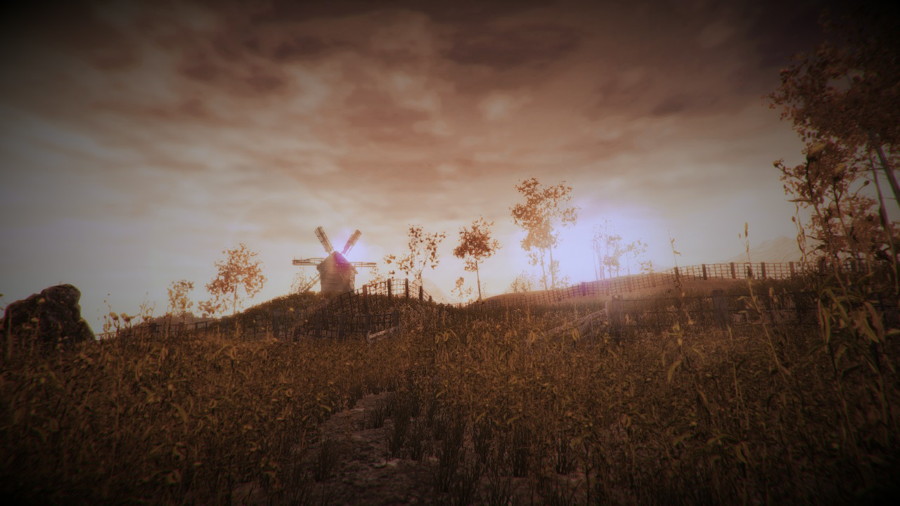
The game is atmospheric, and presents some cool visual contrasts that I felt were worth snapping a screenshot of and admiring. The game is also presented through the lens of a camera. Most of the adventure happens at night or in the dark, so you're limited in visual range by a flashlight. I think both of these gimmicks contribute positively to the overall feeling of suspense and terror as you play.
Another aspect of the game that was good for the horror atmosphere was the audio. This game is of course best played in a dark room with surround sound. The music (very light and eerie), sound of footsteps, and the occasional horrific shriek and jumpscare all served the game well. I did try the game out in handheld mode for a bit, and while not ideal, the audio did still sound solid enough coming from the Switch's speakers.
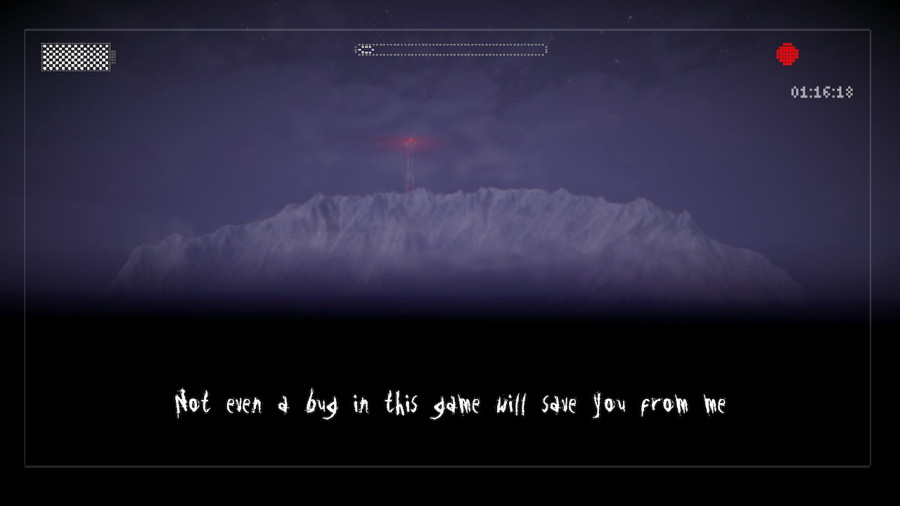
It's not all good though. While the game is atmospheric and was visually impressive on PC in 2013, the game looks seriously dated on Switch. In fact, the Switch version is inferior to even the Wii U release from a technical standpoint. Textures are bland and blocky. Objects render in and out at weird distances. The geometry of the ground often changes as you walk, which is particularly annoying and distracting.
In addition to the dated visuals, the game is full of bugs. I clipped out of bounds multiple times just walking along the boundary. Once you get out of bounds, it's very hard to get back in and more weird things happen. On multiple occasions I was forced to restart a level because of this, particularly in the earlier chapters of the game.
There were also cases of objects like fences and rocks that should be solid not having any collision detection. And while it may not be a bug, sometimes it felt as the way the monsters moved and followed you didn't follow a pattern or make sense, which presented a bit of an unfair feeling. Having a monster appear behind you and insta-kill after you've finished a level's objectives is spooky enough, but might not make for the best gameplay experience.
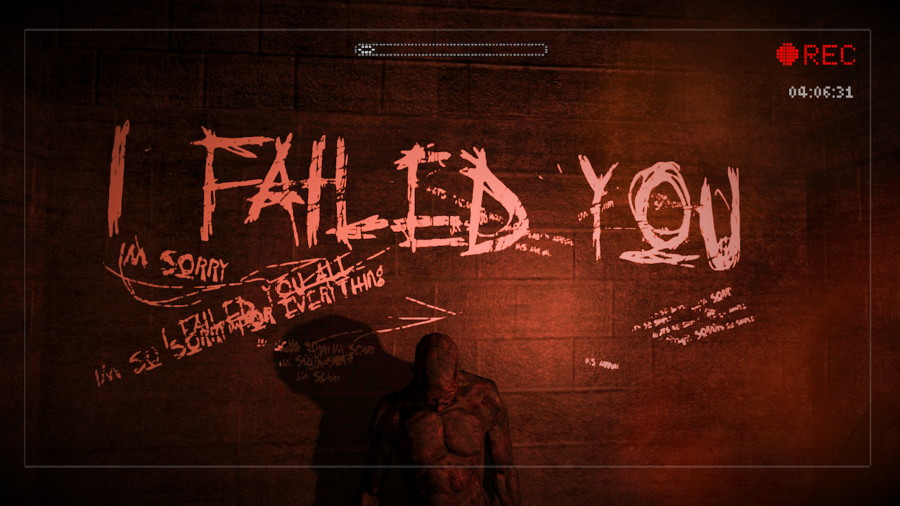
I struggled for a while thinking about how I should "rate" this game. It's very dissapointing to see a Switch version that not only doesn't fix 6 year old bugs, but isn't even on par with previous releases on weaker consoles. While I did run into fewer issues as I progressed in the game, from a technical standpoint this game deserves a poor rating.
However, I kept thinking back to the purpose of the game. To scare you. It's really best played by horror fans in one sitting on a dark and dreary night. The bugs and visuals were a bit annoying, but they didn't ruin the horror experience for me (some of the bugs were creepy enough to add to it). It's a decent game for a good price. It's not "The Shining", but this game still plays in 2019, even if the Slenderman doesn't.
Verdict

Good
Good games are simply that: good. They are generally fun to play but might be lacking in longevity, replay value, or presentation. These games might be good buying decisions for some people, but not for others. Some otherwise great games may fall into this category if they are priced unreasonably high. The devil is in the details.
Want to know what this score means? Check out our Scoring Guidelines page.
Rial Johnson founded Nintendo Castle in 2011 with hopes to build the largest collection of Nintendo walkthroughs, guides, and content on the web. He is an avid gamer with a special place in his heart for Nintendo, but often finds himself writing about games more than actually playing them. You'll likely see him around Nintendo Castle and on social media, mostly managing the front-end content of the site.